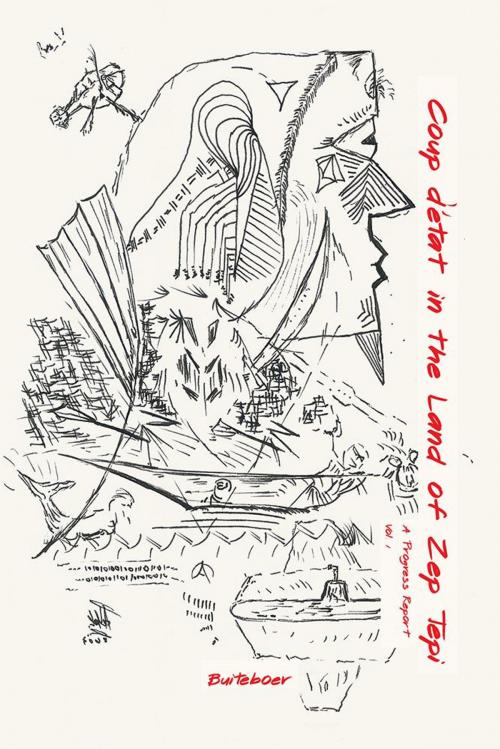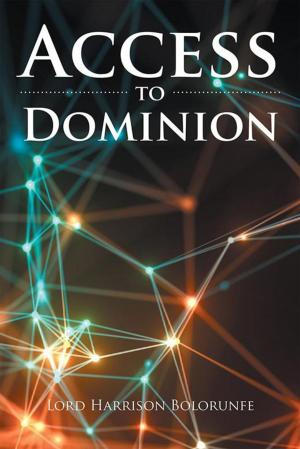| Author: | Buiteboer | ISBN: | 9781482875621 |
| Publisher: | Partridge Publishing Africa | Publication: | August 12, 2016 |
| Imprint: | Partridge Publishing Africa | Language: | English |
| Author: | Buiteboer |
| ISBN: | 9781482875621 |
| Publisher: | Partridge Publishing Africa |
| Publication: | August 12, 2016 |
| Imprint: | Partridge Publishing Africa |
| Language: | English |
If you have ever wondered where the human obsession with the apocalypse comes from, if you ever wanted to know why the world did not come to an end on 21 December 2012, as prophesied by the Mayan calendar and propagated by paranoid apocalyptomaniacs, then Coup Dtat in the Land of Zep Tepi: A Progress Report, is for you. But why? Story Hunter out on a harebrained mission from Juba (capital of the newly independent Republic of Southern Sudan) to Lake Mwitanzige (named Lake Albert in colonial lingo) stumbles upon a legend somewhere in the depths of Central Africa. This will in due course turn out to be one of the most controversial discoveries to jump from the mists of mythological time into the twenty-first century. To be precise, on the border between the Democratic Republic of Congo and Uganda, a legend speaks about the disappearance of a tribe called Bachwezi into Lake Mwitanzige. This exposes information concerning goings-on in ancient Egypt around 1450 BC. Story Hunter and Buiteboers research reveals that the Bachwezi had fled from Egypt into the depths of Central Africa. They fled from Pharaoh Akhnaten, who had out of the blue imposed a religious singularity on the ancient lands that bore a multiplicity of gods, goddesses, demigods, and godlike human pharaonic rulers. The publication of this story in turn upsets a delicate balance of forces in the realm of the heavens. It speculates that the Bachwezi may have found, in Lake Mwitanzige, a portal by way of which to transmigrate and take the rebellion against a prophecy of their doom, expressed by the singularity Akhnaten, off the world. Did they make a quantum leap of faith, like Gilgamesh, the demigod king of Uruk, to postlife outerplanetary realms where the gods reside? After the Uganda discovery, the report accounts how while on a side journey through Mozambiques Zambezi Valley, where the Cahora Basa dam lies, Story Hunter is ambushed by a strange old man. He shows Story Hunter how, in precolonial times, the Songo people built a tower to reach heaven. This causes Story Hunter to be catapulted into an off-world realm where it becomes clear that all is not what it seems in Kosher, Vegan, or even Halaal in the postlife off-worldly realms. Will it turn out that the Bachwezi may in fact have staged an insurgency or are plotting a coup in the land of Zep Tepi? Volume 1 of Coup Dtat in the Land of Zep Tepi: A Progress Report exposes for the first time how a legend from Central Africa explains the extremely violent obsession humans and their religions have with catastrophes, apocalypses, and the like. Be it said as well, the pages of this report, hastily typed by Buiteboer in the course of one very hot South African summer night, also sheds light on the question as to why the world did not come to an end on 21 December 2012, as apparently foretold by the Mayan calendar. Did the Bachwezi have a hand in staying the course of the ticking time bomb hidden in the codes of the Mayan calendar? Will we meet RA and Quetzalcoatl at the other end of dawn?
If you have ever wondered where the human obsession with the apocalypse comes from, if you ever wanted to know why the world did not come to an end on 21 December 2012, as prophesied by the Mayan calendar and propagated by paranoid apocalyptomaniacs, then Coup Dtat in the Land of Zep Tepi: A Progress Report, is for you. But why? Story Hunter out on a harebrained mission from Juba (capital of the newly independent Republic of Southern Sudan) to Lake Mwitanzige (named Lake Albert in colonial lingo) stumbles upon a legend somewhere in the depths of Central Africa. This will in due course turn out to be one of the most controversial discoveries to jump from the mists of mythological time into the twenty-first century. To be precise, on the border between the Democratic Republic of Congo and Uganda, a legend speaks about the disappearance of a tribe called Bachwezi into Lake Mwitanzige. This exposes information concerning goings-on in ancient Egypt around 1450 BC. Story Hunter and Buiteboers research reveals that the Bachwezi had fled from Egypt into the depths of Central Africa. They fled from Pharaoh Akhnaten, who had out of the blue imposed a religious singularity on the ancient lands that bore a multiplicity of gods, goddesses, demigods, and godlike human pharaonic rulers. The publication of this story in turn upsets a delicate balance of forces in the realm of the heavens. It speculates that the Bachwezi may have found, in Lake Mwitanzige, a portal by way of which to transmigrate and take the rebellion against a prophecy of their doom, expressed by the singularity Akhnaten, off the world. Did they make a quantum leap of faith, like Gilgamesh, the demigod king of Uruk, to postlife outerplanetary realms where the gods reside? After the Uganda discovery, the report accounts how while on a side journey through Mozambiques Zambezi Valley, where the Cahora Basa dam lies, Story Hunter is ambushed by a strange old man. He shows Story Hunter how, in precolonial times, the Songo people built a tower to reach heaven. This causes Story Hunter to be catapulted into an off-world realm where it becomes clear that all is not what it seems in Kosher, Vegan, or even Halaal in the postlife off-worldly realms. Will it turn out that the Bachwezi may in fact have staged an insurgency or are plotting a coup in the land of Zep Tepi? Volume 1 of Coup Dtat in the Land of Zep Tepi: A Progress Report exposes for the first time how a legend from Central Africa explains the extremely violent obsession humans and their religions have with catastrophes, apocalypses, and the like. Be it said as well, the pages of this report, hastily typed by Buiteboer in the course of one very hot South African summer night, also sheds light on the question as to why the world did not come to an end on 21 December 2012, as apparently foretold by the Mayan calendar. Did the Bachwezi have a hand in staying the course of the ticking time bomb hidden in the codes of the Mayan calendar? Will we meet RA and Quetzalcoatl at the other end of dawn?















